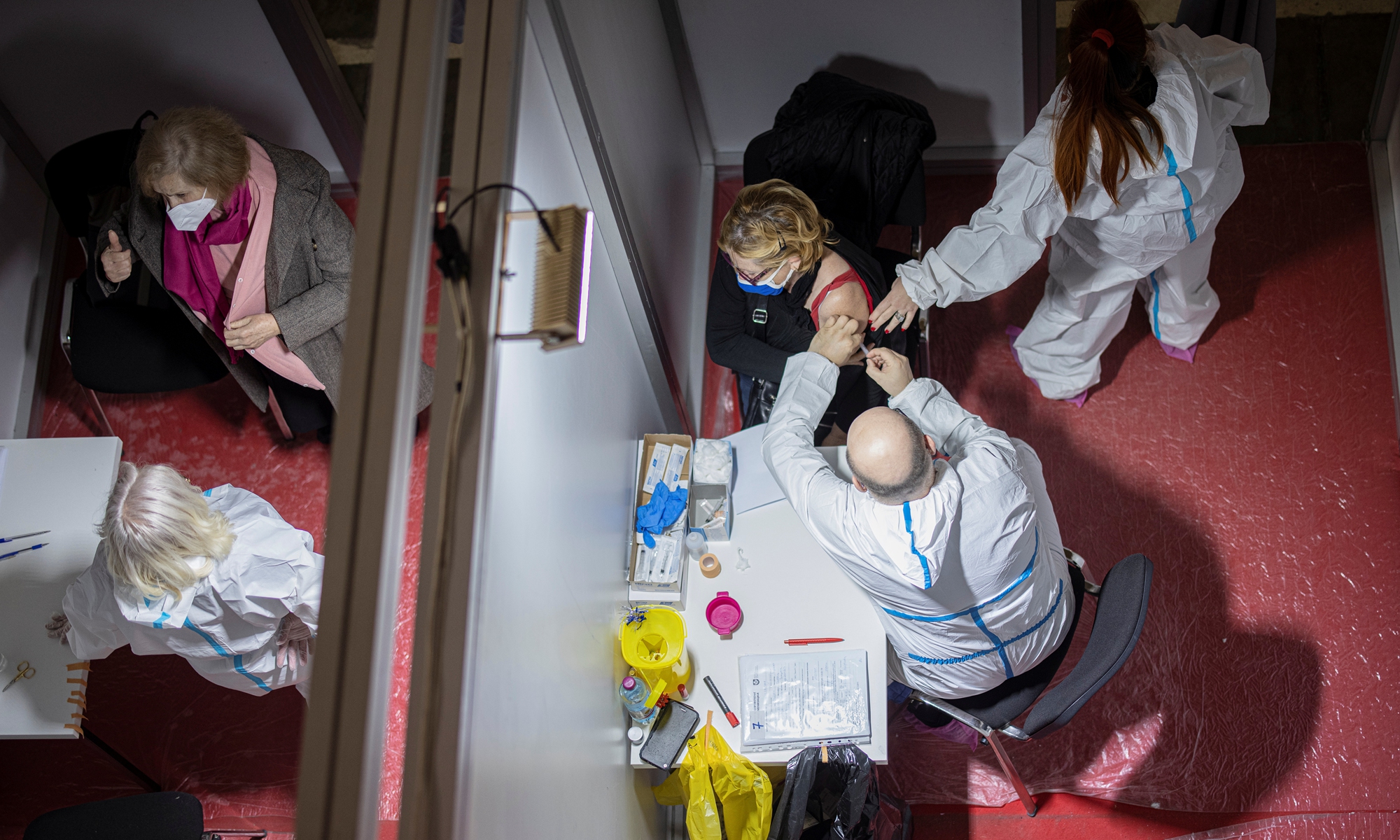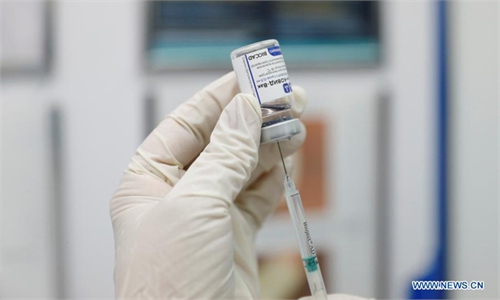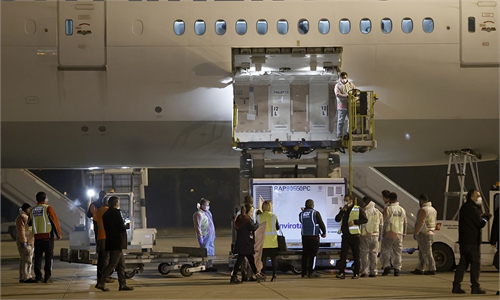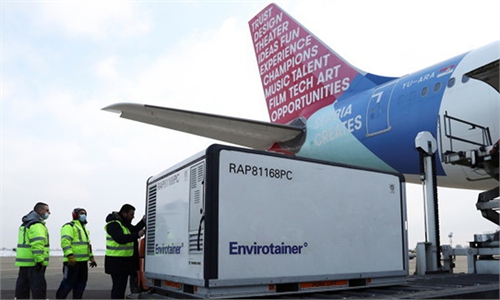Europe vaccine disorder pushes Balkan countries toward China, Russia shots
EU vaccine disorder pushes Balkan nations toward China, Russia shots

A woman receives a dose of the Chinese Sinopharm vaccine as the country begins mass vaccination against COVID-19 in Belgrade, Serbia, on Tuesday. Serbia is the first European country to receive and use Chinese vaccines, Serbian President Aleksandar Vucic said on January 16 while welcoming the shipment of 1 million doses of China's Sinopharm inactivated COVID-19 vaccine at the Belgrade Airport. (See story on Page 15) Photo: IC
The disorder of vaccine distribution in the EU has pushed many of its members and candidates in the bloc, including Balkan countries, to seek for more sources of shots, including those made in China and Russia, Chinese analysts said, noting that Serbia's using of China's Sinopharm vaccines may encourage more of its neighbors to follow, and the West's criticism of China for "increasing" its influence in the region would not die down as long as vaccines remain a strategic item during the COVID-19 pandemic.
As the first European country to approve the use of Chinese-developed COVID-19 vaccines, Serbia has reportedly sped ahead to achieve continental Europe's highest per capital inoculation rate, Financial Times reported on Tuesday. It added that Balkan countries are following the lead to turn to China and Russia's vaccines.
The EU has pledged to give six prospective members in the western Balkans—including Serbia—70 million euros ($85 million) to buy COVID shots, but deliveries are facing delays, Bloomberg reported.
As more Balkan countries consider turning to China and Russia for scarce vaccines, some Western media are reporting that the region, which has been considered as one of EU's most important neighbors, will fall into fierce competition among China, Russia and the US on influence in these region.
China's export of vaccines is not a political act, but some Western countries' hype on the issue, which views everything China does in a completely geopolitical light, is driven by their lack of trust in China, Cui Hongjian, director of the Department of European Studies at the China Institute of International Studies, told the Global Times.
"It is not about a vaccine. Anything exported by China will be considered by some Western countries as a political act, which is difficult to get rid of in the short term. In today's world, vaccines have been more than just medical supplies. Vaccines have significance for the world to get back on track and are necessarily strategic due to the lack of reasonable and equitable distribution mechanisms and limited capacity," Cui said.
The confusion over vaccine distribution in the EU has been going on for some time and will continue until vaccine capacity is sufficient.
The EU initially prohibited member states from procuring their own vaccines in order to maintain uniformity in vaccine distribution. However, differences in the strengths of member states and the means to obtain vaccines have made it impossible to avoid competition between countries, analysts said. The lack of uniformity in standards for manufacturers and logistics in the EU also allowed some rich countries to control the flow of vaccines.
The EU has signaled to its member states that it is unable to perfect vaccine distribution. With uneven distribution in the EU and rising demand for vaccines across countries, some small countries have had to turn to other ways to obtain vaccines.
Hungary has already signed a deal to purchase a large amount of vaccines from Russia and will likely continue to seek more from China. Serbia's approval of Chinese vaccines is also likely to drive similar practices in neighboring countries.
Despite the hype of China's "vaccine diplomacy," China will prove that its vaccines are up to standard. It will continue to strengthen its cooperation with the world in vaccine research and development as well as transparency, and further integrate into international rules, such as more cooperation in CoVax, analysts said.
"Accusations against China will always exist. China simply needs to continue to help countries in need to save lives, which is the best response to the slander," Cui told the Global Times.




